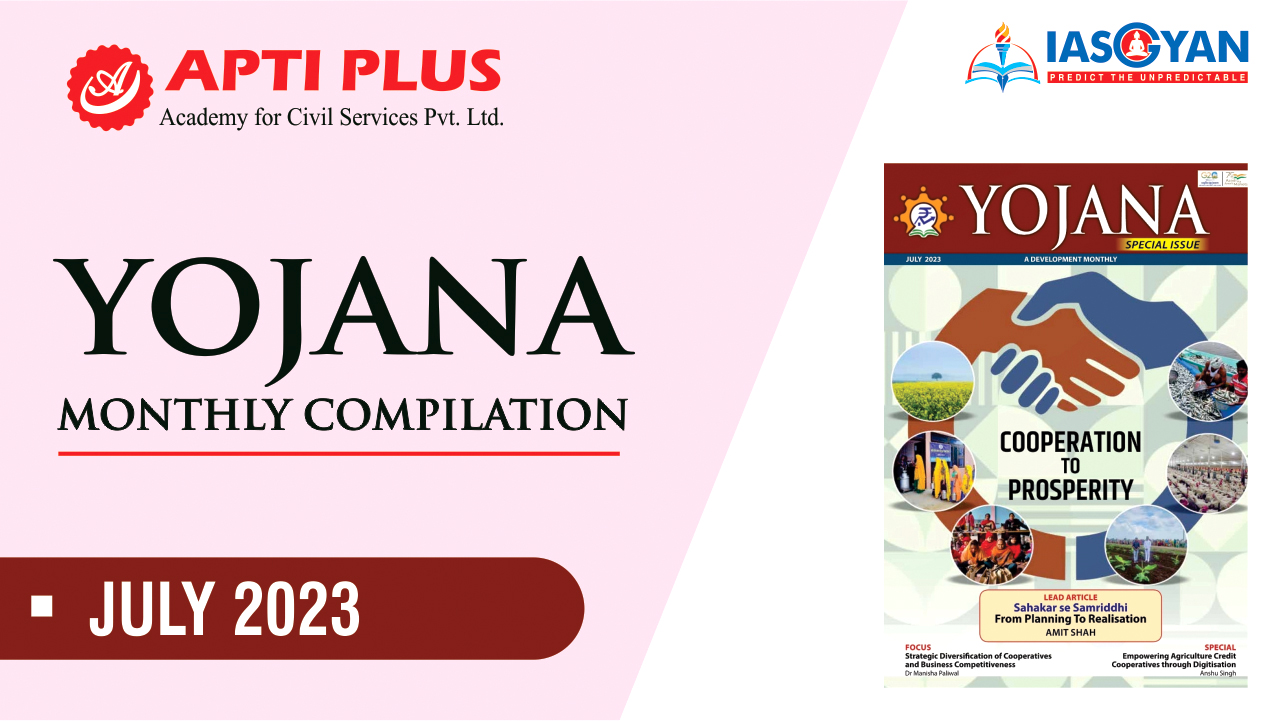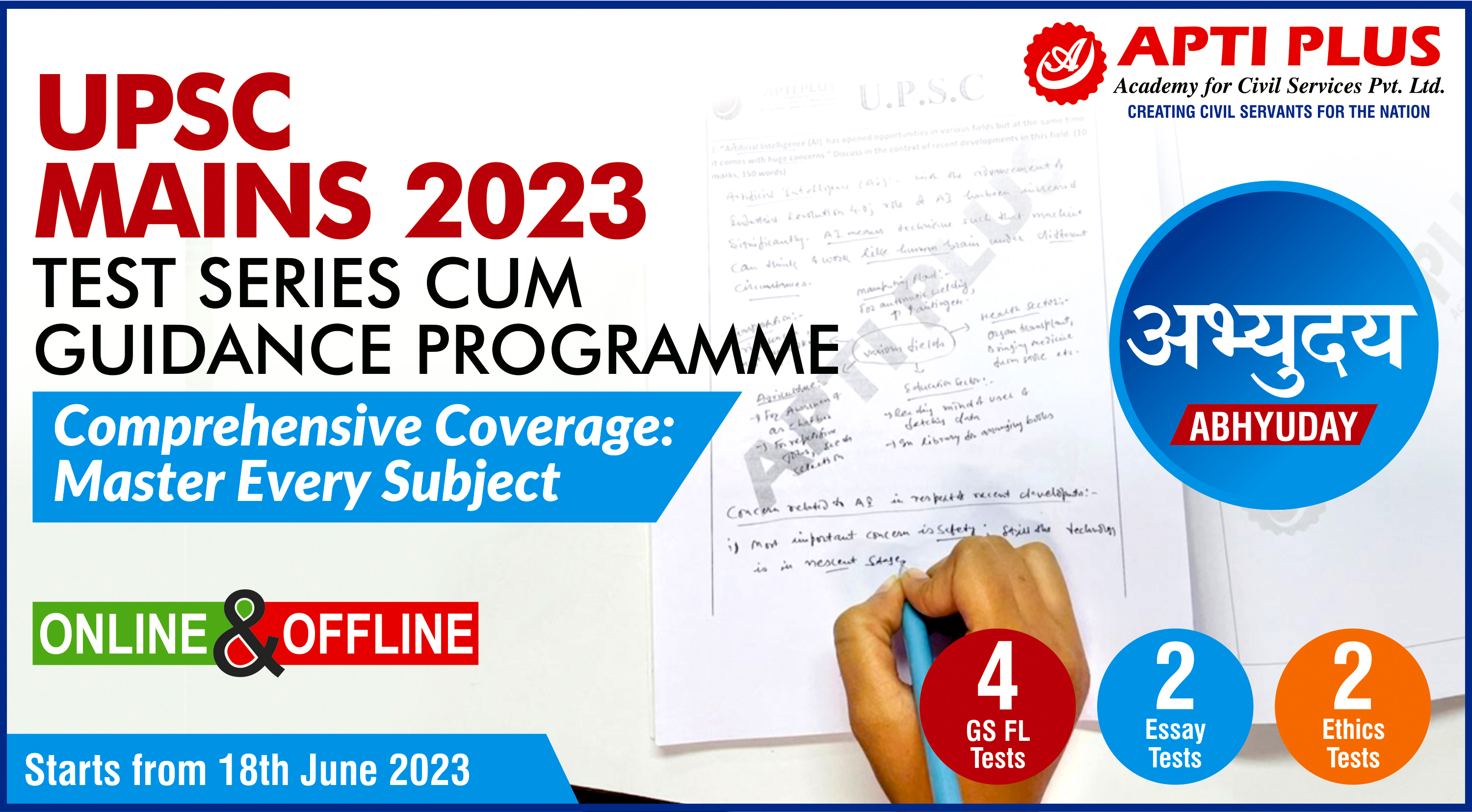Description

Disclaimer: Copyright infringement not intended.
Context
- PM Modi has been conferred the Lokmanya Tilak National Award for his exceptional leadership, outstanding contribution to the nation's progress and his efforts in fostering a sense of patriotism among citizens.
- The award is presented every year on August 1, which is the death anniversary of Bal Gangadhar Tilak, also known as Lokmanya Tilak.
- PM Modi has been chosen as the 41st recipient of this award.
Details
- PM Modi donated the award money to Namami Gange Project as his name "Gangadhar" has Ganga in it.
- Namami Gange Programme’, is an Integrated Conservation Mission, approved as ‘Flagship Programme’ by the Union Government in 2014 to accomplish the twin objectives of effective abatement of pollution, conservation and rejuvenation of National River Ganga.
About the Award
- The Lokmanya Tilak National Award is conferred on people to honour the legacy of Indian independence activist, Bal Gangadhar Tilak.
- The award was constituted by Tilak Smarak Mandir Trust in 1983. It is given to people who have worked for the progress and development of the nation and whose contribution can only be looked upon as remarkable and extraordinary.
- Previously this prestigious award was bestowed to former Presidents Dr Shankar Dayal Sharma and Pranab Mukherjee; former PMs Indira Gandhi, Atal Bihari Vajpayee and Dr Manmohan Singh; businessmen NR Narayana Murthy and Cyrus Poonawala; and engineer E Sreedharan, among others.
- Last year, the Lokmanya Tilak National Award was conferred upon senior scientist Tessy Thomas, popularly known as India's "missile woman." She served as the project director of Agni series missile systems, making significant contributions to the country's defence capabilities.

About Lokmanya Bal Gangadhar Tilak
Early life
- Bal Gangadhar Tilak was born on 23rd July 1856 in Ratnagiri, Maharashtra in a Marathi Hindu Chitpavan Brahmin family.
- At the age of sixteen Tilak was married to Tapibai.
- After completing Bachelor of Arts in first class in Mathematics from Deccan College of Pune in 1877, he also obtained his L.L.B. degree from Government Law College.
Contribution towards Education
- Inspired by Vishnushastri Chiplunkar, he co-founded the New English school for secondary education in 1880 with a few of his college friends, including Gopal Ganesh Agarkar, Mahadev Ballal Namjoshi and Vishnushastri Chiplunkar.
- The success of the school led them to set up the Deccan Education Society in 1884 to create a new system of education that taught young Indians nationalist ideas through an emphasis on Indian culture.
Freedom Movement
- Tilak joined the Indian National Congress(INC) in 1890. He represented the extremist faction of the INC which opposed its moderate attitude, especially towards the fight for self-government.
- In response to the Partition of Bengal implemented by Lord Curzon in 1905, which was seen as a British strategy to divide and weaken the Indian nationalist movement, Tilak played a significant role in promoting the Swadeshi Movement.
- He was one of the most-eminent radicals at the time. In fact, it was the Swadeshi movement of 1905–1907 that resulted in the split within the Indian National Congress into the Moderates and the Extremists. One of the reason being extremist desire to appoint Tilak or Lala Lajpat Rai to be the president of INC.
- Tilak's "Swarajya is my birthright and I shall have it!" slogan became a rallying cry for the Indian independence movement, emphasizing Tilak's unwavering commitment to the idea of self-rule for India and the assertion of Indian rights.
- Tilak was addressed as the ‘father of Indian unrest’ in the book ‘Indian Unrest’ written by Valentine Chirol, an English journalist.
- The events like the Ganapati festival and Shiv Jayanti were used by Tilak to spread the nationalist spirit beyond the circle of the educated elite of urban areas in opposition to colonial rule. But it also exacerbated Hindu-Muslim differences.
- Tilak reunited with his fellow nationalists and rejoined the Indian National Congress during the Lucknow Pact in 1916, bridging the divide between the extremist and moderate factions within the party.
- Lucknow Pact between the INC headed by Tilak and All-India Muslim League led by Muhammad Ali Jinnah was an attempt for hindu-muslim unity in nationalist struggle.
- Indian Home Rule Movement, started in 1916, is believed to have set the stage for the phases of the Indian freedom movement, under the leadership of Annie Besant and Bal Gangadhar Tilak.
- Between 1908 and 1914, he spent 6 years in Mandalay Prison for praising the valour of revolutionaries Khudiram Bose and Prafulla Chaki.
Books and Newspapers
- Tilak started two weeklies, Kesari in Marathi and Mahratta in English in 1880–1881 with Gopal Ganesh Agarkar as the first editor.
- One of his notable works is "The Arctic Home in the Vedas," where he proposed that the Vedas were composed in the Arctic and brought south after the last ice age. This theory generated significant debate among scholars but reflected Tilak's interest in connecting Indian history and culture with ancient global civilizations.
- In "The Orion," Tilak attempted to calculate the time of the Vedas using the position of different Nakshatras (stars). He delved into astronomical interpretations of ancient texts to establish their antiquity and cultural significance.
- Tilak's work Shrimadh Bhagvad Gita Rahasya, which he wrote during his imprisonment at Mandalay – the analysis of Karma Yoga in the Bhagavad Gita, which is known to be a gift of the Vedas and the Upanishads.
MUST READ ARTICLES:
https://www.iasgyan.in/daily-current-affairs/namami-gange#:~:text=The%20Namami%20Gange%20Programme%20is,of%20the%20National%20River%20Ganga.
|
PRACTICE QUESTION
Q. Discuss the role and contributions of Bal Gangadhar Tilak in India's struggle for independence. Analyze his ideas, writings, and political actions during the freedom movement. To what extent did Tilak's political action influence the rise of communalism in 20th century India? (250 Words)
|

https://newsonair.gov.in/News?title=PM-Narendra-Modi-to-be-conferred-Lokmanya-Tilak-National-Award-in-Pune-tomorrow&id=465199#:~:text=The%20award%20was%20instituted%20in,and%20development%20of%20the%20nation.
















